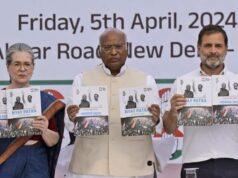Double trouble? Will vaccines work against double mutant variant

Several experts have suggest that the double mutant variant accelerated India’s second Covid wave.
NEW DELHI: Many variants of the Covid-19 virus are in circulation in India and other parts of the world.
Viruses mutate all the time as part of the evolutionary biology. Since its outbreak last year, Covid-19 virus too has undergone several changes in its genetic code. While some mutations have weakened it, others have made it stronger, i.e., more infectious.
Experts have said that the massive surge in cases during India’s second wave was triggered predominantly by the “double-mutant” variant found in the country. This variant has now surfaced in other parts of the world as well.
And the problem is — it appears to be more infectious and seems tougher to stop.
The World Health Organization on Monday declared the variant that emerged in India, known as B.1.617, as a “variant of concern”.
“There is some available information to suggest increased transmissibility of B.1.617,” the WHO’s Marie Van Kerkhove said from Geneva.
The strains emerging from the UK and South Africa have also been classified as variants of concern by the global health body.
What is double mutation?
Like other variants of concern, B.1.617 has more than a dozen mutations.
According to a report by US-based NPR, two mutations of the virus are particularly concerning.
Ravindra Gupta, a microbiologist at the University of Cambridge, told NPR that these mutations are found on an important part of the virus — where the immune system attacks.
“This is why the variant is labeled as a ‘double mutant’. It had these two big mutations, in two big places, and that is what has caused all the worries,” Gupta explained.
The report said that each of these mutations — or similar versions of them — have been found in other parts of the world such as California and Brazil.
“Previous studies have shown that these mutations, individually, give the virus an advantage against the immune system. It reduces the ability of antibodies to fight off the virus,” the report said.
Is it the most contagious Covid mutant in the world?
Last week, Tom Wenseleers, an evolutionary biologist at the University of Leuven in Belgium, was quoted as NPR by saying that cases of the Indian variant were rising at a faster rate than cases of UK variant (B.1.1.7) in three states in India as well as in the United Kingdom.
“If you take all these pieces of evidence together, I’m fairly confident that the variant from India has a growth advantage and that is a reason for the current epidemic in India,” he said.
However, other researchers are dubious of Wenseleers’ findings since the data is preliminary and has not been published.
Karthik Gangavarapu, a computational biologist at Scripps Research Institute, told NPR: “I don’t think the story is clear yet. I’m not saying B.1.617 isn’t more transmissible than B.1.1.7, I’m just saying there’s a burden of proof you need to establish before you can say that.”
However, Gangavarapu says there’s no question that the variant in India is worrisome and something the whole world needs to try and stop together.
But does the double mutant translate to “double trouble”?
There were fears that if the two mutations came together, the effect would add up or that they may amplify each other.
However, the preliminary studies did not give any such indication.
NPR reported that Gupta and his team found that the double mutant behaved a lot like the single mutant in response to antibodies created by the Pfizer vaccine.
“There didn’t seem to be the addition of one mutant on top of the other,” Gupta said. “And that was really quite important because that assumption has caused panic.”
Simultaneously, NPR reported that researchers at Emory University performed similar studies with antibodies taken from 15 people who were vaccinated with either the Pfizer or Moderna shots.
They found that the antibodies could still neutralize the B.1.617 variant, but the potency of the antibodies dropped by about seven-fold on average.
“Despite this reduction, all vaccine blood samples … still maintained the ability to block the B.1.617 variant,” said immunologist Mehul Suthar at Emory, who led the study.
Thus, the findings suggest that at least the Pfizer and Moderna shots worked just as well against the double mutant variant as they did against the ones from South Africa (B.1.351).
But what about the vaccines available in India?
Are Covishield and Covaxin — the two vaccines currently available in the country — also effective against the double mutant?
The NPR report quoted Rakesh Mishra, adviser to the Hyderabad-based Centre for Cellular & Molecular Biology, as saying that Covishield can also prevent severe cases and deaths.
Mishra said that based on experiments conducted by him and his colleagues, Covishield gave similar results to what other researchers have found with the Pfizer and Moderna vaccines.
“We were actually very relieved because this means this variant has not managed to resist the vaccines,” Mishra told NPR.
Meanwhile, White House’s chief medical adviser Dr Anthony Fauci had earlier said that India’s homegrown vaccine Covaxin was also found to be effective against the double mutant strain.
“This is something we are still gaining data on, but most recent data looking at convalescent sera of Covid-19 cases in people who received Covaxin, it was found to neutralise the 617 variant,” Fauci had said.
An Indian Council of Medical Research (ICMR) study had also found that Covaxin was able to neutralise the double mutant strain.
“#COVAXIN neutralises against multiple variants of SARS-CoV-2 and effectively neutralises the double mutant strain as well.,” it had tweeted last month.



